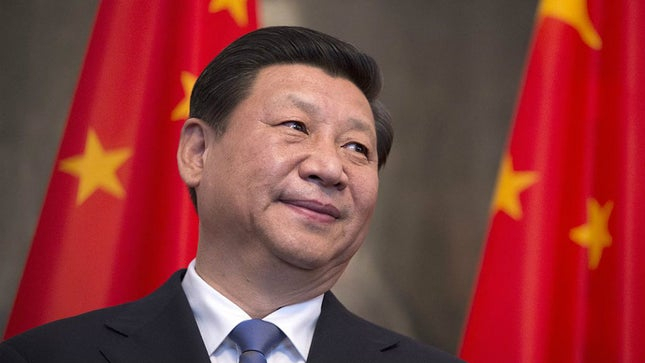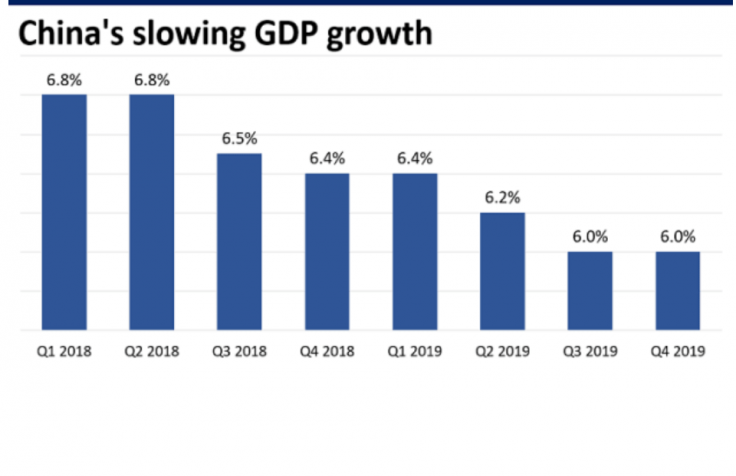The expose earlier this week that Chinese President Xi Jinping probably knew about the deadliness of the coronavirus but didn't act decisively to contain its spread has thrown a bucket of cold water on the carefully preserved image of the Chinese ruler as the infallible one. With the death toll topping 2,000 and the Covid-19 virus is far from finished, China's Communist Party leadership has many battles to fight. Preserving the image of Xi Jinping and making the country continue to believe in the 'Xi myth' has now emerged as a task as important as containing the virus.
The unravelling of the Xi image happened when a transcript of an internal Communist Party speech was leaked, showing that Xi knew about the extent of the risk posed by the deadly virus as early as in the first week of January. Xi made public comments on the spread of the virus only two weeks later. This revelation undermined the propaganda effort by Beijing to show that the provincial government in Hubei was to blame for the incompetent handling of the epidemic, and that the central government under Xi acted decisively to contain the virus.

Beijing didn't assess risk competently
However, the turn of events after Xi's apparent intervention shows that Beijing and Xi did not actually have a handle on the situation; they either did not act with due seriousness or they didn't understand the gravity of the situation. Xi is reported to have said on January 7 that he was "at all times, monitored the spread of the epidemic and the progress in prevention and control work, and continue to give oral orders and instructions."
A good 11 days later, on January 18, Wuhan officials gave the green light to an ill-fated potluck dinner gathering for 40,000 families. The Wuhan party authorities allowed the large public feast go ahead despite the fact that there were clear signs that an epidemic was gathering pace. It later turned out that at least 10 cases of coronavirus infection were reported from among the participants of the feast on January 18, raising fears that the event must have accelerated the spread of the infection in Wuhan.

Provincial leadership's hands tied?
The leaks further show that a top Beijing official, who was sent to Hubei to assess the situation, also reported that the situation under control. The expert himself was later diagnosed with the virus infection. However, as the crisis took on an unprecedented dimension, there were overt efforts from Beijing to pass the blame onto provincial officials. On February 13, Jiang Chaoliang, the party secretary of Hubei, was fired and replaced with Shanghai mayor Ying Yong. Two other high-ranking officials had been fired a few days earlier.
However, some in the provincial leadership have suggested that they could not have acted faster as a decision to declare the coronavirus outbreak as an epidemic was to have come from the centre. The Wuhan mayor himself raised this issue, suggesting that the centre had failed to act faster on the virus containment front. Even earlier, China took its own sweet time before it alerted the World Health Organisation (WHO) about the virus outbreak.
The mysterious virus infections in Wuhan was reported in early December after workers at the Huanan Wholesale Seafood Market reported ill and taken to hospitals. The early diagnosis was for pneumonia but soon the cases grew more mysterious. China reported to the World Health Organisation (WHO) about the mystery virus on December 31, full three weeks after the deadly virus started spreading among people.
Steady slowdown of economy
While western analysts have been blunt over Xi's perceived failure in preventing the epidemic muted voices from within China too have raised questions over his leadership. Xi is the second person after founder Mao Zedong in the history of the Republic to have amassed almost tyrannical powers. In 2019 it looked like Xi would remain in power indefinitely. The myth-building around him was in full display. But that legacy is under a shadow now.
The Chinese economy recorded a steady slowdown in all quarters of 2019, and the coronavirus outbreak has worsened the economic outlook further. The Economist Intelligence Unit (EIU) predicted last week that public frustration would escalate dangerously if the virus is not contained completely by the end of March. "At that point, the central authorities will not have room to pin the blame on local officials, given that they will have been directing the crisis response for longer than two months," the EIU said, according to CNBC.
President Xi made a televised speech over the weekend saying that despite the virus outbreak the nation has to "deliver this year's economic and social targets." Xi asked the provincial leaders to control the epidemic and work to fulfil the economic and social targets as well.
In the face of criticism over the handling of the outbreak the party leadership is fighting a twin battle -- fighting the virus along with information and reports critical of the Xi Jinping regime. There is stricter censorship of social media to make sure internal critics don't breach the line. Externally, the strategy is to kick up a conspiracy angle, suggesting that China is the fall guy and unfairly targeted the world over for the virus outbreak.
As Gordon Watts wrote in Asia Times, the Year of the Rat is increasingly becoming 'the Year of the Virus' for Xi Jinping.








